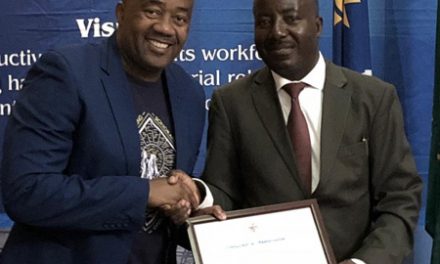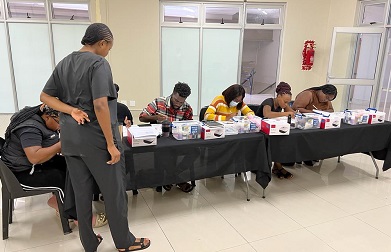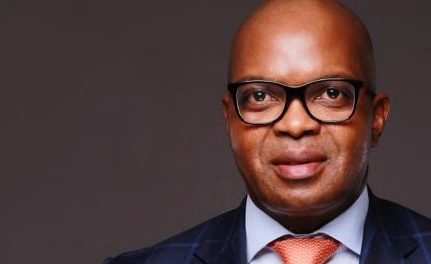
O&L’s strong HR drives equity push

Terence Makari believes that the NEF needs to foster stronger relations and engagements with the two social partners – something he would work towards in order to create an environment where laws would be legislated that would protect the interest of all parties, create employment and be beneficial in growing the economy as well as increasing the country’s competitiveness in attracting foreign direct investment, which was essential if we were to realize the industrialization aspirations as a nation.

Johannes Kangandjera would like to make a significant contribution to the work of the Employment Equity Commission saying “I would like to see to it that the Affirmative Action Employment Act of 1998 is amended as proposed by key stakeholders and also ensure that the entire system works and can address non-compliance.”
The Ohlthaver & List Group announced last week the appointment of Johannes Kangandjera, Group Manager: Employee Relations; to the Employment Equity Commission Board, and the appointment of Terence Makari, Human Capital Manager at Namibia Breweries Limited (NBL) to the Namibia Employers Federation’s Board.
Johannes Kangandjera was pleasantly surprised by the appointment, having been nominated by Berthold Mukuahima, the O&L Group Human Capital Director. “I am confident that I will be able to represent the employers on the Commission and at the same time make a contribution to Employment Equity on a national scale.”
Regarding employment equity he said “Employers should first and foremost comply with the law. As a country we should address technical, leadership and professional skills shortages. This will be achieved by training and exposure for trainees and understudies in real situations where they can learn and apply skills. We should also look at creating a national debate on employment equity. The legal system that deals with non-compliance should also be addressed to ensure that all comply.”
Terence Makari, who has served on the EEC board for the last three years has recently been nominated and duly elected as a board member of the Namibia Employers Federation (NEF). He said “To put the importance of serving on these boards fully in context, it is vital to outline that our labour legislative environment is based on a tri-partite system consisting of government, employers (represented through the NEF) and employees (represented through Labour Unions).
The various tri-partite engagement forums make extensive input towards labour legislation before and at times after it has been tabled in parliament. Hence, with O&L being the biggest private employer group, it is imperative that we are represented at these forums and can contribute in shaping the statutory environment that will affect our future.”
Makari believes two aspects need immediate attention. One is the fact that at management and executive level, Namibia has not seen the desired progression of designated group employees.
Thus, an overall commitment towards the development of designated group talent into these levels by employers is essential to avoid a potential quota system in the future and it is the NEF’s role to encourage its members to attain this. “The second is the need for us to lessen certain provisions in the Act to align to practical realities, and I am specifically referring to the requirements for employers to have under-studies for non-Namibian employees with permanent residence or domicile status or the requirement to apply for exemption in that regard.
The exemption application process is cumbersome to such an extent that employers no longer submit these applications and developing understudies for the aforementioned group of employees has proven to be discouraging for the employers as well the understudies in events where the position incumbent does not leave the organization.”












































